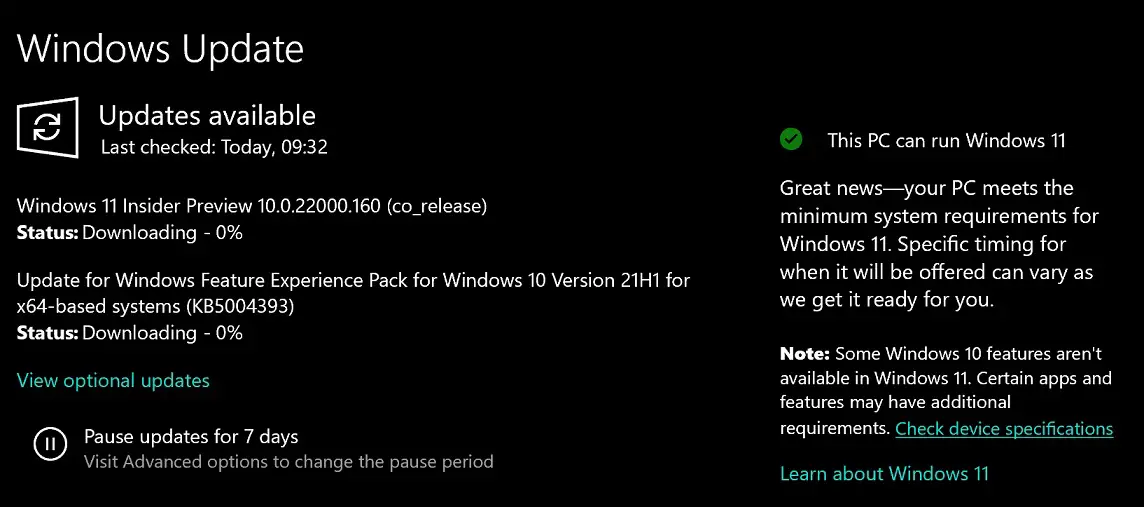Microsoft confirmed running Windows 11 on a virtual machine requires TPM 2.0
The hardware requirements set by Microsoft earlier for Windows 11 only applied to physical machines, for example, a TPM 2.0 security chip must be enabled when Windows 11 is installed on a physical machine.
However, installation in a virtual machine does not have these requirements. Maybe Microsoft is based on the virtual machine usage scenario and potential compatibility considerations, so there are not many requirements.
But Microsoft today announced that starting from the Windows 11 Build 22000.194 version, the installation of Windows 11 on a virtual machine implements the same hardware requirements as a physical machine.
In other words, if you want to install Windows 11 on a virtual machine, you must also enable the security chip. Without this chip, the virtual machine will not be able to use Windows 11.

When deploying or upgrading Windows 11 in the virtualization software as required by Microsoft, the system automatically detects whether the environment supports the invocation of the TPM 2.0 security chip.
If the TPM 2.0 security chip is successfully detected and can be used normally, the user can deploy Windows 11 in the virtual machine or perform an upgrade from the existing version.
If the security chip cannot be detected, the device does not meet the requirements during installation or deployment, and it prompts that the device must enable the security chip before it can operate. This is actually the same as the user installing Windows 11 on a physical machine.
If you have previously deployed a Windows 11 virtual machine, it may no longer be able to upgrade, unless you can add a security chip to the virtual machine to use it.





